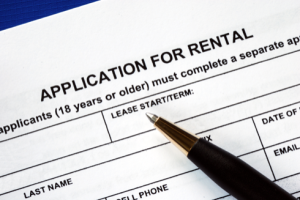All landlords worry about the quality of the applicants interested in their properties. Beyond the basic credit report, eviction history, and criminal background checks that should be performed right off the bat, there are a few key steps property managers and owners can take to secure the best tenants for their homes or apartments.
BASICS
Of course, start off with the criminal background check. Anyone with a conviction record probably isn’t someone you want renting or leasing your property. An online credit check can reveal some potential red flags- failure to make payments on time, excessive credit card debt, etcetera. Don’t forget to ask for copies of IDs when checking for credit- you may need these copies later. Additionally, an eviction history report might show some problems that you wouldn’t want to deal with on your property. By covering these three reports, you are well on your way towards picking the best tenants.
PRE-SCREENING QUESTIONS TO ASK
Sometimes, an applicant who looks good on paper can be the cause of your headaches later on. So, how do you avoid renting or leasing to those kinds of tenants? Landlords and property managers all have their own questions they like to ask applicants to weed out unfavorable ones. Don’t have a list? Here’s one to get you started.
- Why are you moving?
This question immediately will tell you what kind of tenant this person is. If they have a list of conflicts with their former landlord, this might clue you in to problems you might have later on. Constantly breaking appliances, heated arguments over rent increases, and other possibly unreasonable complaints might be signs of a problem tenant. If they can go on and on about what they disliked about their former residence or landlord, they might easily be able to blame a host of issues on you in the future. Save yourself the hassle, and try to rent to people who generally have fewer complaints.
- When do you plan to move in?
If someone is trying to back out of their old lease, they might do the same with their new lease. By asking them when they plan to move in, you can check to see if there were problems in their previous residence- impending eviction, unresolvable complaints, etcetera.
- Will you consent to credit and background checks?
If they say no, they probably have something to hide.
- Do you have any pets?
If your property strictly does not allow pets but the applicant begs for an exception, or if they lie about their ownership status, this is an easy way to know if an applicant might not be the best fit.
- Do you have any landlord or employer references?
Applicants without references may not have gotten along with employers or landlords, and may not get along with you.
- How many people will be living on the property?
One person’s name on a lease or rental for an applicant who intends to live with roommates might be a red flag. Their roommate might have credit or criminal problems, they might intend to sublet the apartment themselves, or have some other issues.
- What is your monthly income?
This way, you can be sure they’ll be able to pay the rent on time and you can justify rent increases later on.
- Will you be able to pay the security deposit and first month’s rent at the time of move-in?
Similar to the previous question, this can help you determine the applicant’s financial stability or instability.
- May I see your bank statements from the past few months?
By viewing an applicant’s bank statements, you can verify their income. Additionally, you can check their legitimacy- if they consent to show you the statements, they probably aren’t hiding from you or from creditors.
- Do you have any additional questions?
This gives you an opportunity to gauge the potential tenant’s interest in the property and what kinds of services they want from you.
For more information about potentially problematic tenants, take a look at 10 Traits of Terrible Tenants.
DISCRIMINATION
Just note, it can get you into serious legal trouble if you refuse to rent to an applicant and they can prove you discriminated against them. Be sure you are an equal-opportunity housing provider, and rent your homes or apartments without regard to race, color, religion, national origin, marital or familial status, sex, orientation, or physical disability.
Once you’ve got good tenants, find out how to keep them: 10 Ways to Make Good Tenants Stay
For help with investigations or evictions, visit Investigating Problem Tenants or To Evict or Not to Evict: Exploring Your Options.





